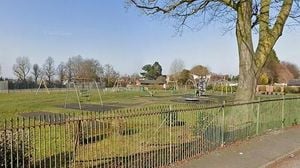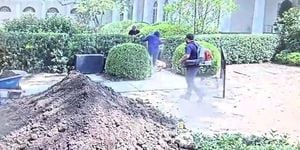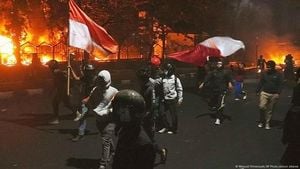BAGUIO CITY—The volume of trash hauled out of this city during the Yuletide season dropped by 50 metric tons, following the city’s strategic shift toward adopting a circular economy model. This innovative method transforms waste from merely refuse to valuable resources capable of being recycled, repurposed, or reprocessed for local consumers.
Mayor Benjamin Magalong announced this impressive reduction, noting Baguio traditionally generated about 250 metric tons of waste daily, which was sent to a commercial landfill after the city had to close its open dump, which collapsed during a storm back in 2011. Last year alone, the city spent around P210 million on waste disposal. Recognizing the need for change, Magalong stated, “We abandoned all waste-to-energy projects and focused on the real reason why we have increasing waste generation, which is wasteful consumption.”
Six months prior to this significant reduction, the city administration had taken proactive measures by requiring households to properly sort recyclables from residual waste, mandatorily collecting kitchen waste for composting at home or on community farms. Measures also included enforcing existing ordinances banning single-use plastic bags throughout markets and commercial establishments.
This pivotal transformation set the groundwork for the commercialization of upcycled products ranging from shopping bags and handbags to furniture and even footwear made from repurposed materials. "A circular economy involves community-led programs to extend the lifespan of consumed products," explained Eugene Buyuccan, head of Baguio’s General Services Office, emphasizing the demographic’s involvement as key to the initiative’s success.
The financial backing for Baguio’s circular economy initiative is significant, with the European Union (EU) allocating P3.67 billion intended for circular economy projects across up to 60 local governments within the Philippines by 2028. Baguio is one of the first ten municipalities benefitting from the EU-PH partnership for the Green Economy Program. EU Ambassador to the Philippines, Massimo Santoro, noted the initiative's importance, reinforcing the role of communities, stating, “Producing new goods from waste minimizes the need for resource extraction.”
Among the standout innovations piloted by Baguio is the use of black soldier fly larvae which are being tested to convert food waste efficiently to compost or fertilizer. This biotechnology gains inspiration from traditional practices connected to the Baguio Ibaloy community, which promotes the use of every part of local vegetables, like taro (gabi), for cooking—a sustainable approach significant for minimizing waste.
The launch of Baguio’s green economy program showcased the community's commitment to sustainable practices, attracting interest from EU diplomats. Councilor Betty Lourdes Tabanda mentioned forthcoming plans to offer incentives for startups creating products from upcycled waste. The city may also implement ordinances requiring public institutions to procure upcycled goods.
Dr. Moeko Saito Jensen, the EU GEPP project manager, noted the EU's broader commitments to environmental sustainability, particularly with the Green Deal aimed at achieving carbon neutrality by 2025. With the Asia-Pacific region contributing nearly 50% of global pollution, Jensen highlighted the importance of knowledge sharing and collaborations on solid waste management and urban forestry with local governments like Baguio.
During a recent gathering hosted by Baguio officials, EU ambassadors expressed eagerness to collaborate on programs involving agriculture, education, and sustainability initiatives—all pivotal themes underscoring Baguio's environment-conscious shift. Baguio has embarked on this ambitious path toward sustainability, solidifying its reputation as one of the forefront cities championing circular economy practices, proving waste can be viewed as a resource rather than just refuse.



